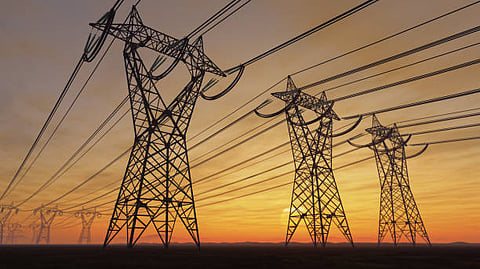Grid strain eased via bigger capacity
By Maria Bernadette Romero – 02 Jan 2025, 00:20
from The Daily Tribune

The Philippine Energy Efficiency Alliance (PE2) is urging the government to prioritize energy efficiency measures over adding new grid capacities to address the country’s energy challenges.
Alexander Ablaza, PE2 president, said proper peak demand management eases pressure on the energy grid, particularly during the summer months when power reserves are stretched thin.
“Why are we planning additional generation and transmission capacities ahead of peak demand management? We should aspire to flatten our daily and annual peak demand curves,” Ablaza said.
He proposed permanent peak shaving through cooling efficiency improvements, such as replacing low-efficiency air conditioners, upgrading chiller plants, and adopting district cooling systems. Non-cooling efficiency upgrades in motors, lighting and other commercial loads, along with energy storage systems, can further shift peak loads to off-peak hours.
Climate for efficiency exists
According to Ablaza, recent policy reforms, including the CREATE MORE Act, should be maximized as catalysts for private sector energy efficiency investments.
The law enhances incentives for energy service companies (ESCOs) and third-party project developers (TPPDs), offering options like income tax holidays and enhanced deductions regimes.
“These reforms are expected to attract more projects in space cooling, refrigeration and energy management technologies,” Ablaza noted.
Recently, the Board of Investments clarified that ESCOs and TPPDs undertaking projects with at least 15 percent energy savings are eligible for full incentives, making such investments commercially viable. However, self-financed projects face stricter limitations on benefits.
The passage of Republic Act 12009, or the New Government Procurement Act, is also seen as a game-changer for government energy efficiency efforts.
For Ablaza, the law for adopting a life-cycle cost approach will enable agencies to prioritize energy-efficient solutions with lower total costs over time.
“This reform will catalyze energy efficiency upgrades in public buildings, lighting and infrastructure. By engaging more businesses in energy efficiency, we can accelerate the clean energy transition and enhance the country’s contribution to global energy efficiency targets,” he said.
To recall, the Department of Energy last year issued circulars that lower energy consumption thresholds for businesses classified as designated establishments under the Energy Efficiency and Conservation Act, fostering inclusivity and resilience amid global energy uncertainties.


